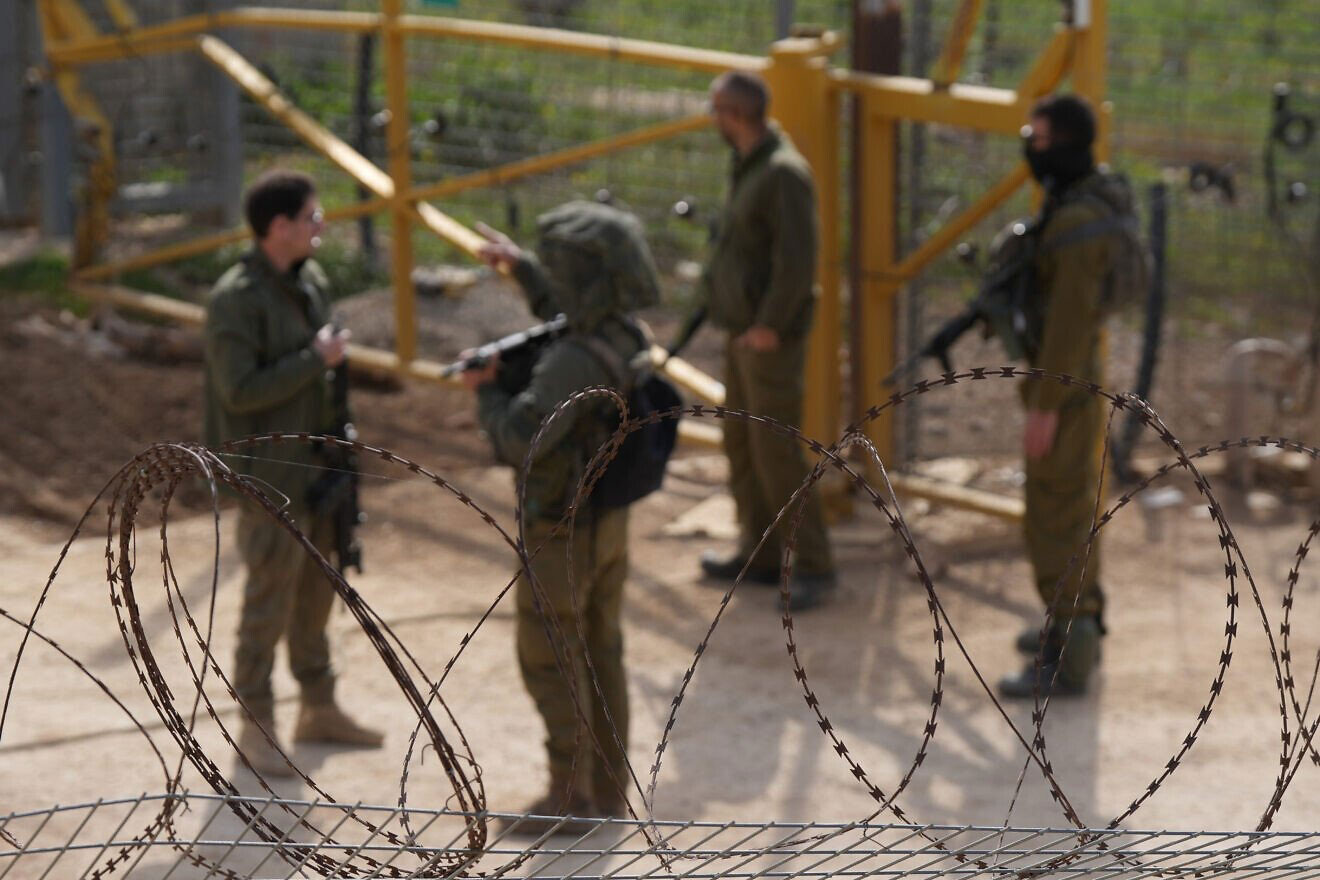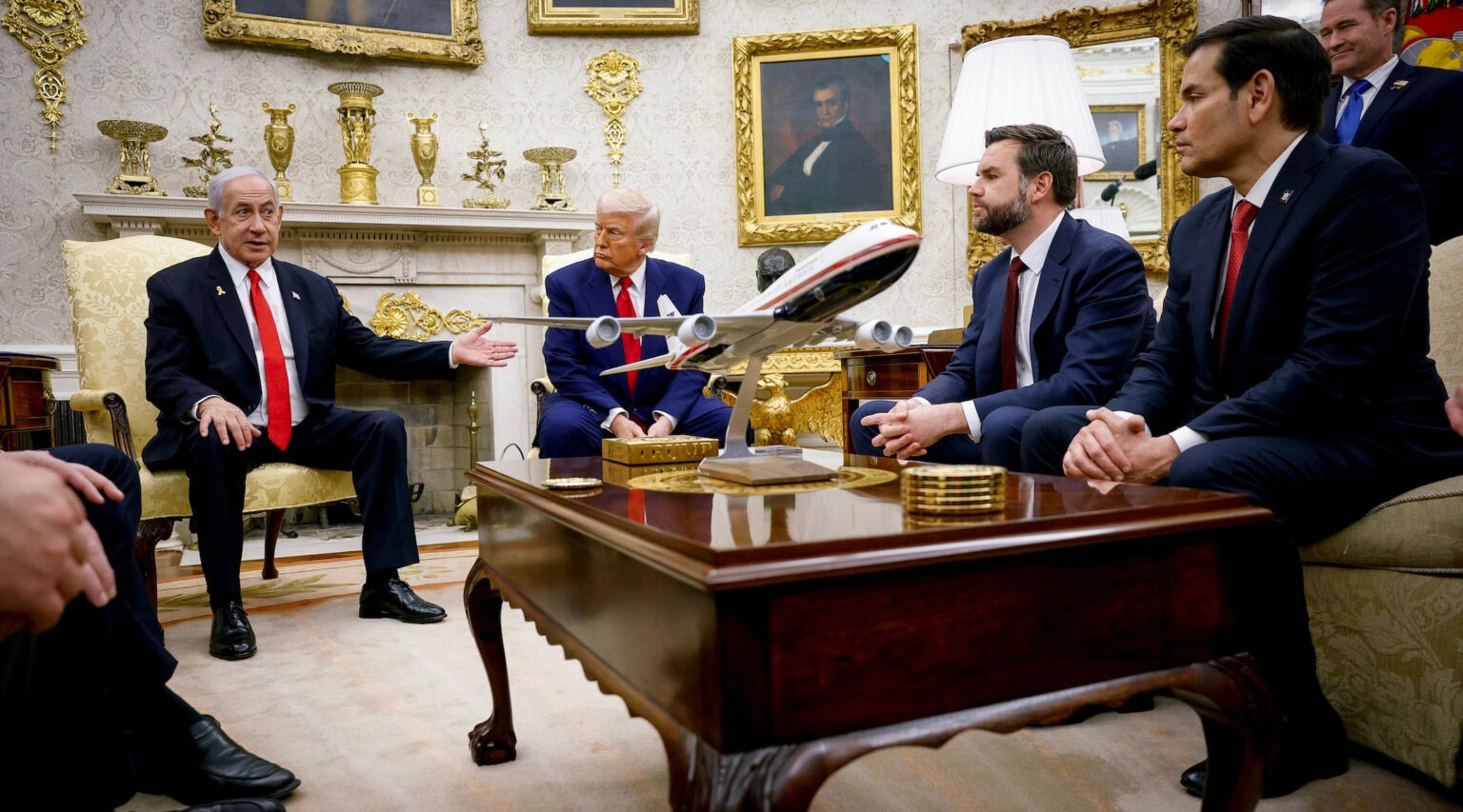Courtesy of JNS. Photo credit: Photo by Gershon Elinson/Flash90
Natan Sharansky speaks at the opening of his wife Avital’s art exhibition and a library at the Oz veGaon nature reserve in Gush Etzion, on Oct. 9, 2018
(JNS) — In issuing an international arrest warrant for Israeli Prime Minister Benjamin Netanyahu, the International Criminal Court has wielded a double-edged sword.
The move on Thursday landed a major public relations blow against Israel. But it also opened up the already controversial tribunal to fresh allegations of politicization, antisemitism and malpractice, including by countries that recognize its jurisdiction. It also placed the ICC on a collision course with President-elect Donald Trump’s administration.
“For many, the ruling will confirm anti-Israel sentiments,” Natan Sharansky, chairman of the Institute for the Study of Global Antisemitism and Policy (ISGAP) and a former Israeli Cabinet member, told JNS on Friday. “But at the same time, many people will recognize the blatant antisemitism behind this decision, which erodes its credibility and now especially could invite a painful American retaliation.”
Despite the sweeping U.S. rejection of the ICC’s warrants for Netanyahu and his former defense minister Yoav Gallant, several Western democracies immediately confirmed they will honor them, including Canada, France, Italy, the Netherlands and the United Kingdom.
Israel Foreign Minister Gideon Sa’ar canceled a visit to Israel by his Dutch counterpart Caspar Veldkamp set for Monday over the Dutch statement of compliance.
The warrants were the first issued against the leaders of a Western democracy, placing Netanyahu in the same category as Russian President Vladimir Putin, former Sudanese leader Omar al-Bashir and Lord’s Resistance Army terrorist organization leader Joseph Kony of Uganda.
Yet, occurring amid a conservative renaissance worldwide and a reassessment of the powers of unelected international bodies, the warrants could invite noncompliance and serious countermeasures on the part of the Trump administration.
Mike Waltz, the administration’s nominated national security advisor, dismissed the warrants and promised a “strong response to the antisemitic bias of the ICC & UN come January,” when the new administration is sworn in.
Sen. Tom Cotton (R-Ark.) called the tribunal “a kangaroo court” and its chief prosecutor Karim Khan “a deranged fanatic. Woe to him and anyone who tries to enforce these outlaw warrants,” the senator said.
Karine Jean-Pierre, the press secretary of the White House under outgoing President Joe Biden, told reporters that her country “fundamentally rejects” the ICC action and remains “deeply concerned” by the “troubling process errors” that led to the decision to seek arrest warrants.
Trump imposed sanctions on the ICC in 2020 for its plans to go after U.S. military personnel. Biden reversed those sanctions. The ICC has not pursued its plans to prosecute Americans.
Eugene Kontorovich, who heads the international law department at the Kohelet Policy Forum, an Israeli think tank, called on the incoming Congress and Trump administration to “pass the Illegitimate Court Counteraction Act, and aggressively sanction all senior staff at the body until no one wants to work there.”
In four years, Kontorovich added, “the ICC will be remembered as yet another institution that wrecked itself on the shoals of anti-Israel politics.”
Austria is among the countries where the ICC has jurisdiction that have come out against the decision to issue arrest warrants for Netanyahu and Gallant.
It is “utterly incomprehensible. It is absurd to create an equivalence between members of a democratically elected government and the leader of a terrorist organization,” Austria’s Federal Chancellery said in a statement. The mention of equivalence was a reference to the fact that the ICC also issued an arrest warrant for Mohammed Deif, a Hamas commander whom Israel has said (and Hamas confirmed) it killed in July.
Hungarian Prime Minister Viktor Orbán said he’d ignore the warrants and invite Netanyahu to Budapest. The warrants were “outrageously impudent” and “cynical,” Orbán said.
A desire to defend Israel may be only a part of the reason for the harsh language by the United States and some of its allies. The ICC’s move on Israel may mean greater willingness on its part to also target U.S. and other Western officials for alleged war crimes.
Israel, the United States, China, Russia, India and Turkey are among the countries that have not ratified the Rome Statute and are therefore not under the court’s jurisdiction.
The ICC was established in 2002 on the basis of the statute, agreed upon by more than 120 countries. Those countries, which include all European Union member states, have agreed to subject themselves to the jurisdiction of the ICC, which tries individuals accused of crimes against humanity, including genocide.
The arrest warrants against the Israelis owe to “reasonable grounds to believe that both individuals intentionally and knowingly deprived the civilian population in Gaza of objects indispensable to their survival, including food, water, and medicine and medical supplies, as well as fuel and electricity,” the ICC has said.
In practical terms, the warrants could make it impossible or complicated for Netanyahu to visit Europe and many other places, and could be used to bolster the case for weapons embargoes against Israel. In the court of public opinion, they could confirm the image, which is being promoted in many Western media, of Israel as a rogue state committing genocide against Palestinians.
Israel has been fighting Hamas in Gaza since Oct. 7, 2023, when about 6,000 Hamas-led terrorists invaded Israel, murdered some 1,200 people and abducted another 251, plunging the region into an ongoing war.
Israel is also facing legal action at the United Nations, to which the ICC does not belong. South Africa and several other countries — including E.U. member states Spain, Belgium and Ireland — have launched a lawsuit accusing Israel of “genocide” in Gaza at the International Court of Justice, or ICJ, which is a U.N. tribunal. Both the ICC and ICJ are based in the Dutch city of The Hague.
Israel has rejected allegations that it targets civilians, stressing its consistent and robust efforts to spare civilian lives in Gaza and beyond.
Beyond the international response to Israel’s defensive actions, the ICC warrants are an escalation in a broader struggle for sovereignty waged between democracies led by elected leaders and global institutions with unelected or unrepresentative leaderships, said Andrew Tucker, director of The Hague Initiative for International Cooperation, or thinc.
“We’ve seen an incredible reliance on this global legal system to achieve world peace and security. But with the arrest warrants, every state faces now the question: Are they going to put all their faith and trust in these global institutions,” said Tucker, whose Netherlands-based research institution focuses on exposing and educating on international lawfare.
To Tucker, the warrants are an expression of a desire by the court and its prosecutor Karim Khan to go after Israel. But in so doing, Tucker said, this legal action is threatening to disarm other democracies of counter-terrorism tools.
“Europe is going to face potentially a wave of terrorist activities and attacks,” he said. “What is the Netherlands allowed to do under international law to fight against terror? If this is the direction that the court is taking, then Western countries are held to an extremely high standard while the enemy is completely unaccountable.”
Sharansky opined that the ICC move against Netanyahu could expose court officials to punitive action by the United States under Trump, and that the ICJ one could cost the United Nations billions of dollars in U.S. funding.
Ultimately, however, Israelis need to assess the arrest warrants in the context of their country’s war against Iran and its proxies, Sharansky argued. “The PR is of secondary importance. Right now, Hamas is on the ropes and so is Hezbollah. The warrants give our enemies new hope, and that’s their main damage. I’m concerned by it,” he said.
But Sharansky is also encouraged by some of what followed the arrest warrants. One encouraging effect, he said. has been the united condemnation of the warrants by all Zionist parties, including the ones harshly critical of Netanyahu, among them the left-wing The Democrats party under former IDF Deputy Chief of Staff Maj. Gen. (res.) Yair Golan.
The ICC warrants are based “on an antisemitic blood libel,” Sharansky said, “but there’s an important difference with previous blood libels.” Amid a resurgence of pro-Israel voices and movements in Europe and throughout the West, he said, “Jews do not stand along in seeing and calling out the mendacious blood libel.
“A significant part of the world stands with us. And we just need to stand firm until enough people recognize these blood libels so that they’re no longer possible,” Sharansky said.





